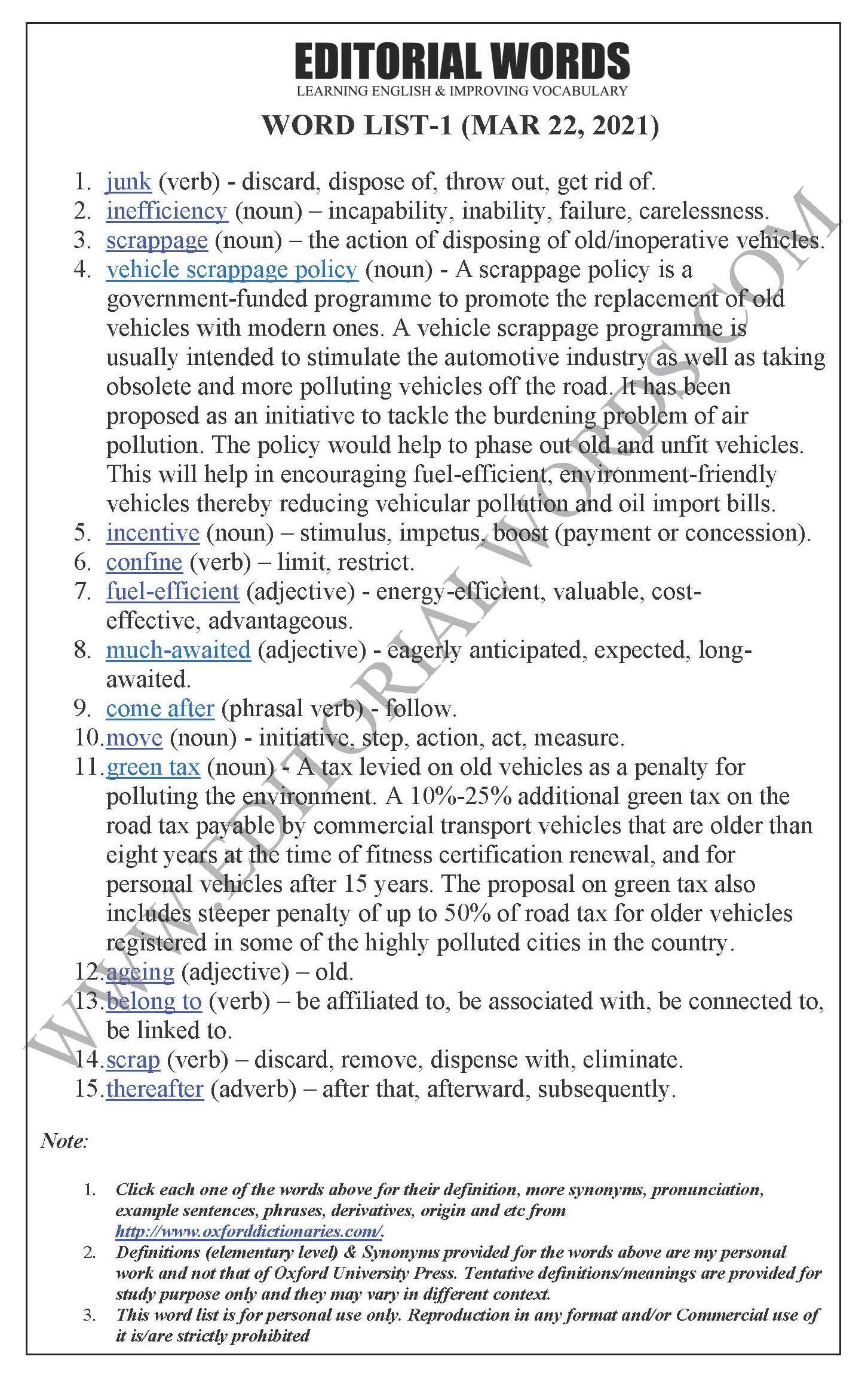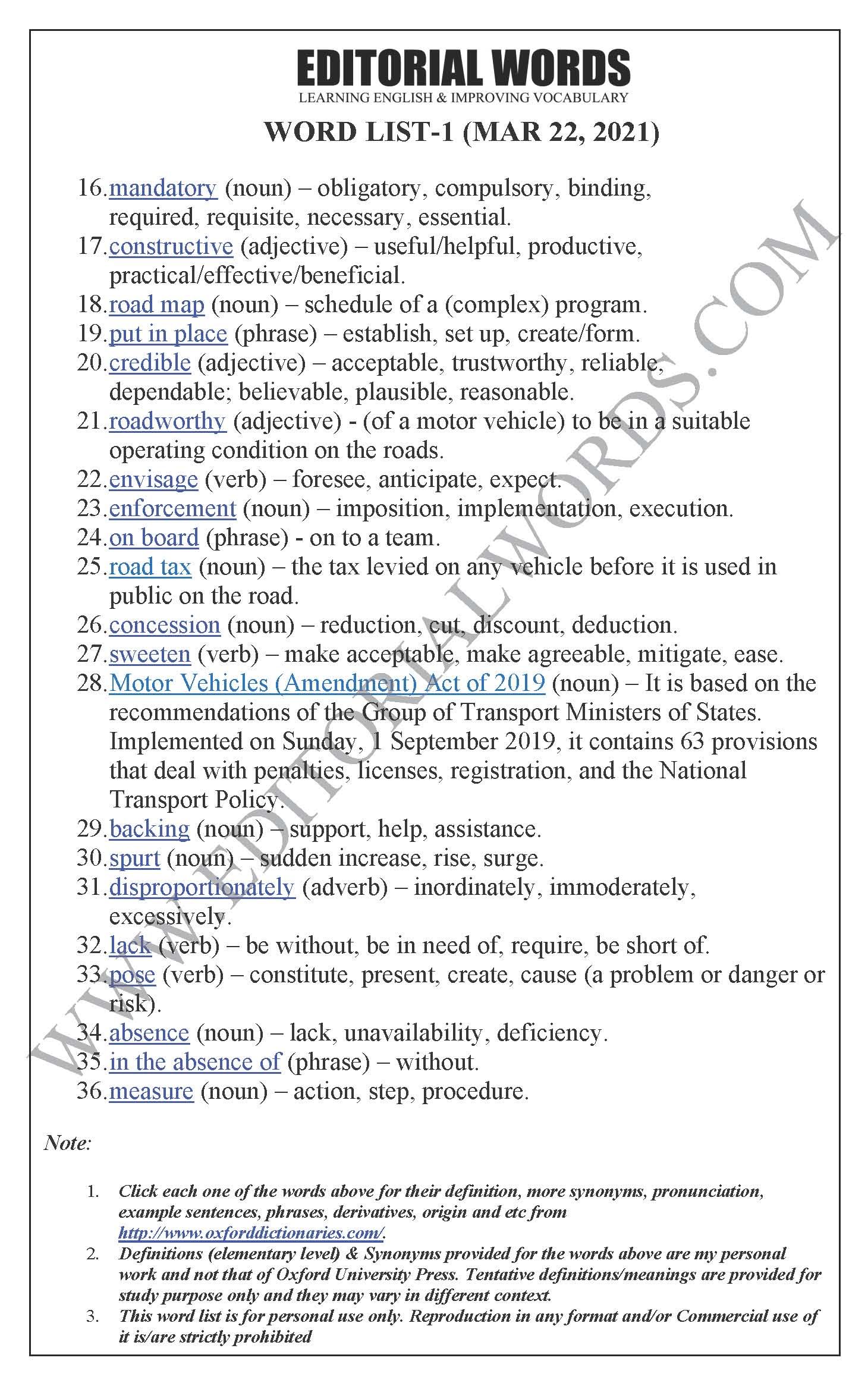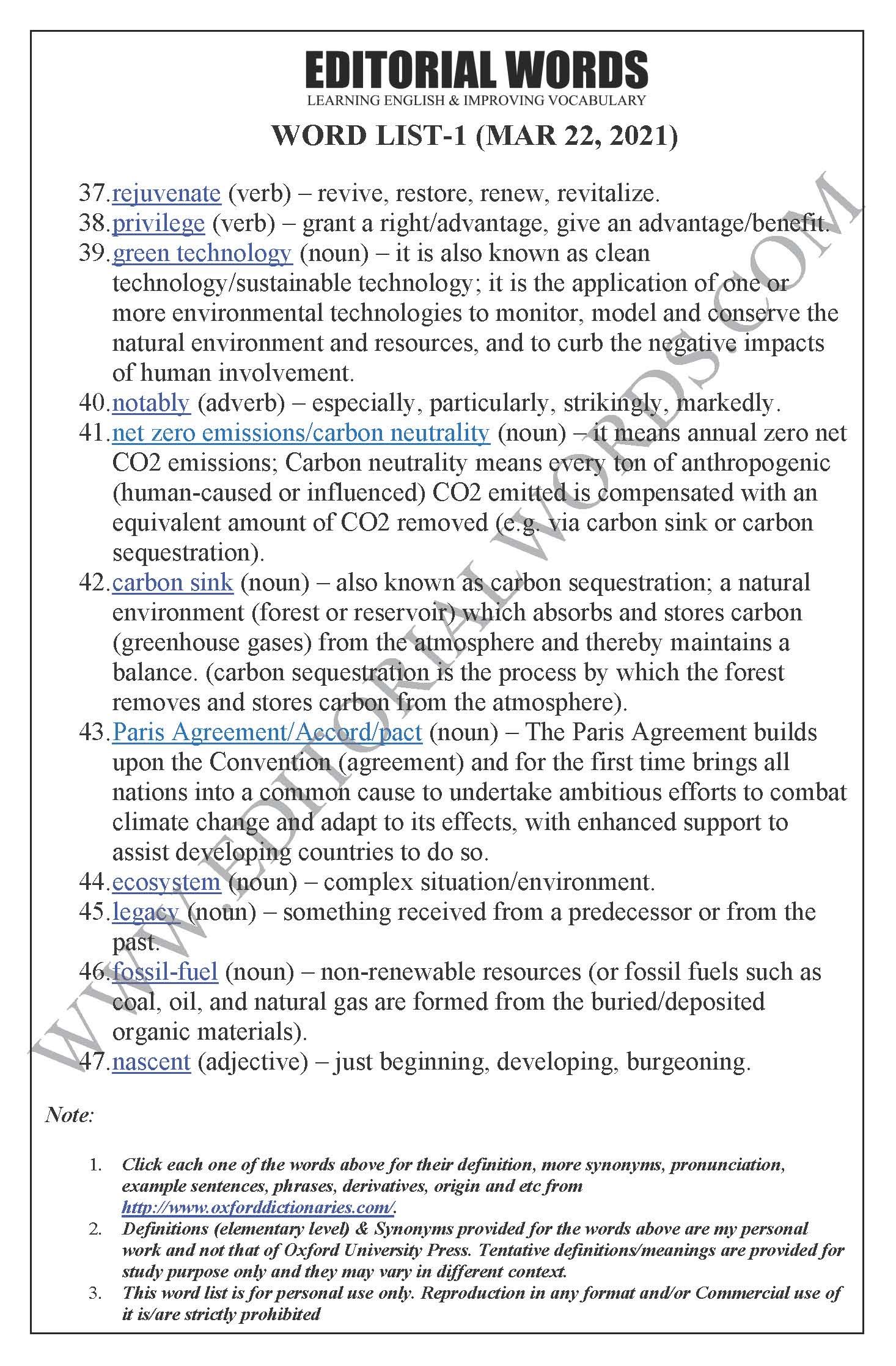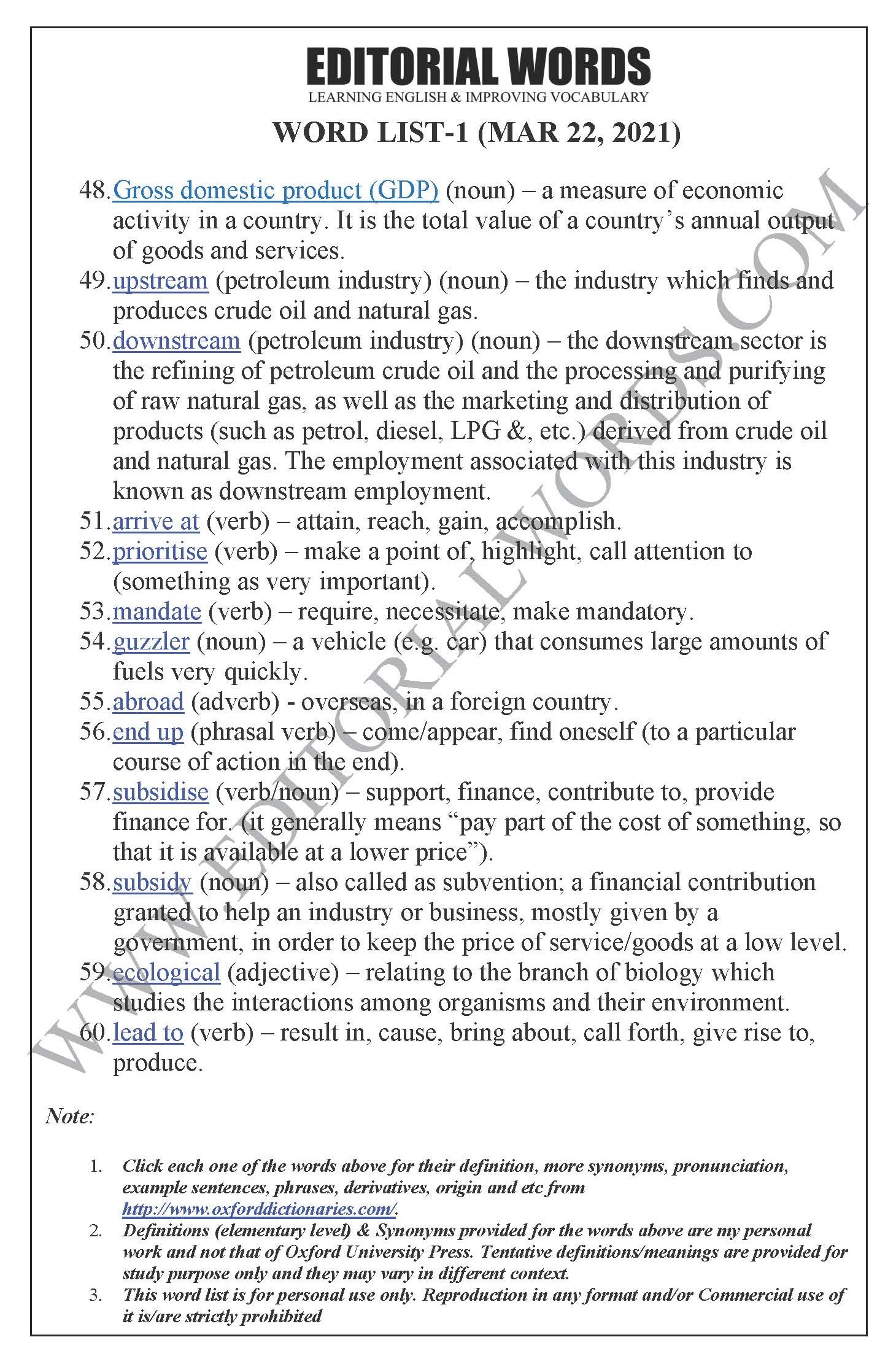The Hindu Editorial (Junk inefficiency) – Mar 22, 2021
The much-awaited vehicle scrappage policy announced by the Transport Ministry, coming after the move for a green tax on ageing and polluting automobiles, promises economic benefits, a cleaner environment and thousands of jobs. For further reading, visit “The Hindu”. Below is today’s word list-1 for The Hindu Editorial (Junk inefficiency) – Mar 22, 2021.
To read this article, click here.
This preview is provided here with permission.
Courtesy: The Hindu
The Hindu Editorial (Junk inefficiency) – Mar 22, 2021:
- junk (verb) – discard, dispose of, throw out, get rid of.
- inefficiency (noun) – incapability, inability, failure, carelessness.
- scrappage (noun) – the action of disposing of old/inoperative vehicles.
- vehicle scrappage policy (noun) – A scrappage policy is a government-funded programme to promote the replacement of old vehicles with modern ones. A vehicle scrappage programme is usually intended to stimulate the automotive industry as well as taking obsolete and more polluting vehicles off the road. It has been proposed as an initiative to tackle the burdening problem of air pollution. The policy would help to phase out old and unfit vehicles. This will help in encouraging fuel-efficient, environment-friendly vehicles thereby reducing vehicular pollution and oil import bills.
- incentive (noun) – stimulus, impetus, boost (payment or concession).
- confine (verb) – limit, restrict.
- fuel-efficient (adjective) – energy-efficient, valuable, cost-effective, advantageous.
- much-awaited (adjective) – eagerly anticipated, expected, long-awaited.
- come after (phrasal verb) – follow.
- move (noun) – initiative, step, action, act, measure.
- green tax (noun) – A tax levied on old vehicles as a penalty for polluting the environment. A 10%-25% additional green tax on the road tax payable by commercial transport vehicles that are older than eight years at the time of fitness certification renewal, and for personal vehicles after 15 years. The proposal on green tax also includes steeper penalty of up to 50% of road tax for older vehicles registered in some of the highly polluted cities in the country.
- ageing (adjective) – old.
- belong to (verb) – be affiliated to, be associated with, be connected to, be linked to.
- scrap (verb) – discard, remove, dispense with, eliminate.
- thereafter (adverb) – after that, afterward, subsequently.
- mandatory (noun) – obligatory, compulsory, binding, required, requisite, necessary, essential.
- constructive (adjective) – useful/helpful, productive, practical/effective/beneficial.
- road map (noun) – schedule of a (complex) program.
- put in place (phrase) – establish, set up, create/form.
- credible (adjective) – acceptable, trustworthy, reliable, dependable; believable, plausible, reasonable.
- roadworthy (adjective) – (of a motor vehicle) to be in a suitable operating condition on the roads.
- envisage (verb) – foresee, anticipate, expect.
- enforcement (noun) – imposition, implementation, execution.
- on board (phrase) – on to a team.
- road tax (noun) – the tax levied on any vehicle before it is used in public on the road.
- concession (noun) – reduction, cut, discount, deduction.
- sweeten (verb) – make acceptable, make agreeable, mitigate, ease.
- Motor Vehicles (Amendment) Act of 2019 (noun) – It is based on the recommendations of the Group of Transport Ministers of States. Implemented on Sunday, 1 September 2019, it contains 63 provisions that deal with penalties, licenses, registration, and the National Transport Policy.
- backing (noun) – support, help, assistance.
- spurt (noun) – sudden increase, rise, surge.
- disproportionately (adverb) – inordinately, immoderately, excessively.
- lack (verb) – be without, be in need of, require, be short of.
- pose (verb) – constitute, present, create, cause (a problem or danger or risk).
- absence (noun) – lack, unavailability, deficiency.
- in the absence of (phrase) – without.
- measure (noun) – action, step, procedure.
- rejuvenate (verb) – revive, restore, renew, revitalize.
- privilege (verb) – grant a right/advantage, give an advantage/benefit.
- green technology (noun) – it is also known as clean technology/sustainable technology; it is the application of one or more environmental technologies to monitor, model and conserve the natural environment and resources, and to curb the negative impacts of human involvement.
- notably (adverb) – especially, particularly, strikingly, markedly.
- net zero emissions/carbon neutrality (noun) – it means annual zero net CO2 emissions; Carbon neutrality means every ton of anthropogenic (human-caused or influenced) CO2 emitted is compensated with an equivalent amount of CO2 removed (e.g. via carbon sink or carbon sequestration).
- carbon sink (noun) – also known as carbon sequestration; a natural environment (forest or reservoir) which absorbs and stores carbon (greenhouse gases) from the atmosphere and thereby maintains a balance. (carbon sequestration is the process by which the forest removes and stores carbon from the atmosphere).
- Paris Agreement/Accord/pact (noun) – The Paris Agreement builds upon the Convention (agreement) and for the first time brings all nations into a common cause to undertake ambitious efforts to combat climate change and adapt to its effects, with enhanced support to assist developing countries to do so.
- ecosystem (noun) – complex situation/environment.
- legacy (noun) – something received from a predecessor or from the past.
- fossil-fuel (noun) – non-renewable resources (or fossil fuels such as coal, oil, and natural gas are formed from the buried/deposited organic materials).
- nascent (adjective) – just beginning, developing, burgeoning.
- Gross domestic product (GDP) (noun) – a measure of economic activity in a country. It is the total value of a country’s annual output of goods and services.
- upstream (petroleum industry) (noun) – the industry which finds and produces crude oil and natural gas.
- downstream (petroleum industry) (noun) – the downstream sector is the refining of petroleum crude oil and the processing and purifying of raw natural gas, as well as the marketing and distribution of products (such as petrol, diesel, LPG &, etc.) derived from crude oil and natural gas. The employment associated with this industry is known as downstream employment.
- arrive at (verb) – attain, reach, gain, accomplish.
- prioritise (verb) – make a point of, highlight, call attention to (something as very important).
- mandate (verb) – require, necessitate, make mandatory.
- guzzler (noun) – a vehicle (e.g. car) that consumes large amounts of fuels very quickly.
- abroad (adverb) – overseas, in a foreign country.
- end up (phrasal verb) – come/appear, find oneself (to a particular course of action in the end).
- subsidise (verb/noun) – support, finance, contribute to, provide finance for. (it generally means “pay part of the cost of something, so that it is available at a lower price”).
- subsidy (noun) – also called as subvention; a financial contribution granted to help an industry or business, mostly given by a government, in order to keep the price of service/goods at a low level.
- ecological (adjective) – relating to the branch of biology which studies the interactions among organisms and their environment.
- lead to (verb) – result in, cause, bring about, call forth, give rise to, produce.
Note:
1. Click each one of the words above for their definition, more synonyms, pronunciation, example sentences, phrases, derivatives, origin and etc from http://www.oxforddictionaries.com/.
2. Definitions (elementary level) & Synonyms provided for the words above are my personal work and not that of Oxford University Press. Tentative definitions/meanings are provided for study purpose only and they may vary in a different context.
3. This word list is for personal use only. Reproduction in any format and/or Commercial use of it is/are strictly prohibited.
The Hindu Editorial (Junk inefficiency) – Mar 22, 2021:




“Phrasal Verbs” We Learnt Last Week
“Idioms & Phrases” We Learnt Last Week
“Important Definitions” We Learnt Last Week
Recent Word Lists For The Hindu Editorial Articles

Be the first to comment